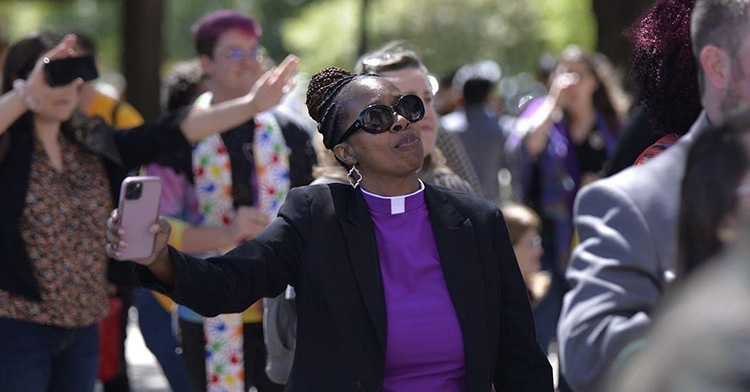
Are you the same leader you were five years ago? What kind of leader will you need to be five years in the future?
How we lead is often contingent upon the particularities of our context. Those particularities can change whether we stay in the same context for a long time or transition to a different one. This is why a leader must remain attentive to what the church needs from her now, which might be different than what the church needed in the past.
A great example of someone who has reinvented herself within the same ministry context is the Rev. Dr. Cynthia L. Hale. You can listen to her story on this week’s episode of Leading and Thriving in the Church.
Cynthia is the founding and senior pastor of Ray of Hope Christian Church (Disciples of Christ) in Decatur, Georgia. As a testament to her unique gifts in ministry, she has served Ray of Hope for 38 years. The church has become a vibrant, multigenerational spiritual community. Because she organized the congregation, she has had to develop a variety of skills during her tenure, including the ability to evolve so that she can be the leader the congregation needs her to be.
In this interview, Cynthia talks about developing laity, mentoring clergy and identifying gifts within her congregation. She even shares transparently about the challenges of being a woman in ministry. If you’re thinking about how you need to adapt your leadership style to meet the changing needs of your context or to be more effective in a new context, you will want to hear what she has to say.

Cynthia Hale: Faithful Reinvention
In the fifth and final episode of our third season, Prince talks with Cynthia Hale, the founding and senior pastor of Ray of Hope Christian Church in Decatur, Georgia.
Resources
Ray of hope
As a Black woman in ministry, the Rev. Cynthia Hale has faced doubters throughout her career. But today she is the founder and spiritual leader of a 5,100-member Georgia church.
By Ken Garfield
The world needs what women bring
Developing women leaders takes more than teaching women skills to lead like men — it requires a new understanding of leadership that “writes women in,” says a scholar of women’s leadership in Christian higher education.
Interview with Karen A. Longman
Listen to the voices of women in ministry
Women in ministry benefit from seeing other women pastoring, says the lead researcher of the Flourishing in Ministry project. That’s why it’s important to witness and learn from the real experiences of women clergy.
Interview with Manuela Casti Yeagley
As debates persist about their roles, women increasingly create their own spaces as congregational leaders
With the Southern Baptist Convention recently expelling churches with women pastors, theological debates are continuing over gender roles in leadership.
By Shari Finnell
Before you go…
I’ve known and admired Cynthia’s ministry and leadership for many years; her church is located just a few minutes from where I grew up. What strikes me about her story is how she has effectively adapted her pastoral role, which has enabled the congregation to continue to grow numerically and spiritually for decades. Cynthia spoke candidly with me about the benefits of a three-month sabbatical and how she wishes she had taken one earlier in ministry. The fact is that leadership is difficult work, and pastoral leadership is emotionally and spiritually demanding. The changing political climate will require even more of us. Cynthia says that she now takes a break to recharge every six weeks or so.
All of us who lead need to be attentive to the ways in which God is calling us to shift, to delegate and to grow. Nothing stays the same. How is God calling you to evolve as a leader?
You can always reach me and the Alban Weekly team at alban@duke.edu. Until next week, keep leading!

Prince Rivers
Editor, Alban at Duke Divinity




